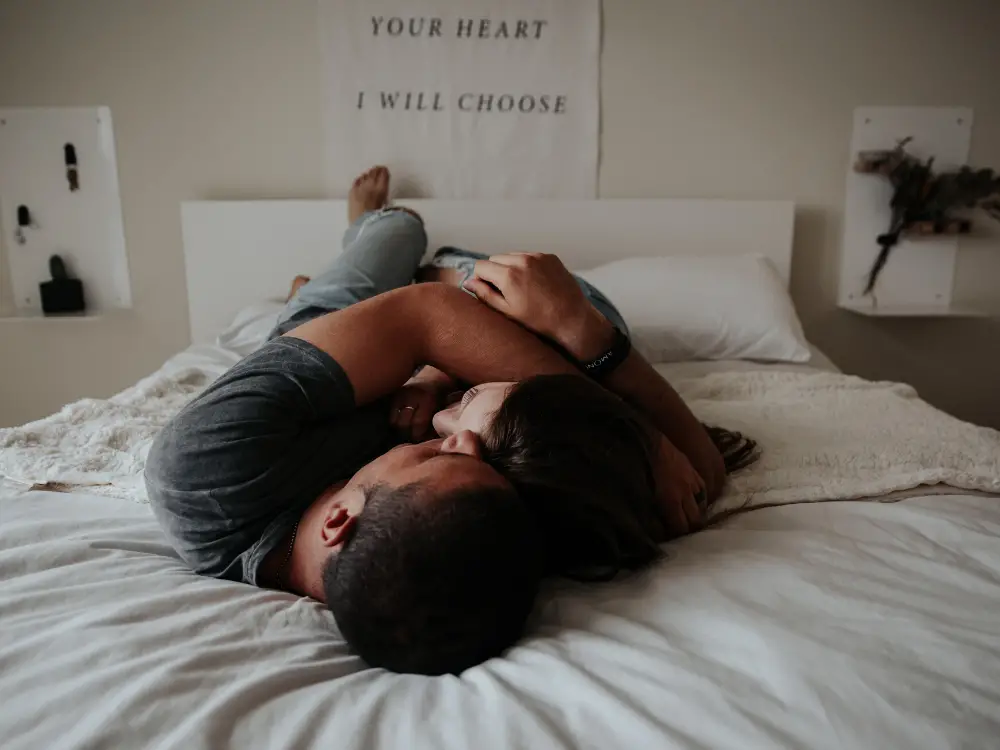From movies to TV shows to music, acceptance of hookup culture’s casual sex surrounds mass media. Pop culture and the entertainment industry brings to life the mainstream positive opinion on hooking up among young adults today in the United States. Countless college students especially grew up watching well-loved sitcoms that feature a main character notorious for their love of sex.
Samantha Jones from “Sex and the City” portrays a woman unashamed of her wild sex life. All Joey Tribbiani from “Friends” has to do to score his next conquest in bed is ask his iconic line, “How you doin’?” If casual sex were a sport, Barney Stinson from “How I Met Your Mother” could easily win MVP.
This, nonetheless, is not the ‘90s or early 2000s; unlike Jones, Tribbiani and Stinson, you don’t need to go to a bar to easily find someone to sleep with. With the many dating and hookup apps available today, you can suddenly have the perfect candidate to potentially get down and dirty with at the click of a button or swipe of a profile. But just because you can participate in casual sex as much as you want, does that mean you should?
Here’s the hard truth you might not want to hear — despite how popular, quick and easy casual sex may seem, it may be causing you more harm than good.
In middle school or high school, sex ed was supposed to teach you all about sex, your anatomy and the potential short and long-term physical effects of engaging in sexual activity, like STI/Ds and pregnancy. What you may not have learned, however, is the fact that casual sex can also have lasting consequences on your mental health, for both men and women.
Sure, you can prevent sexually transmitted diseases by practicing safe sex. But a condom won’t stop you from suffering the potential adverse mental health consequences that casual sex may lead to. These effects come about because sex is more than simply a physical act; it’s an emotional and psychological act, too.
To confirm whether or not casual sex has a negative influence on mental health, Dr. Zhana Vrangalova from Psychology Today surveyed 530 college students. The truth from her findings? It turns out the outcome all depends on your motivation for having sex in the first place. She differentiates between right and wrong motivations.
Right reasons are autonomous, or reflective of moral values. Wrong reasons are nonautonomous, meaning reward seeking and tending to avoid any internal or external punishment. From the students surveyed who had sex for the wrong reasons, Vrangalova says that they had “lower self-esteem, higher depression and anxiety and more physical health symptoms.”
After checking out Vrangalova’s five nonautonomous reasons below, ask yourself, are you suffering from these effects because you’re participating in hookup culture with the wrong intent?
- Wanting to feel better about yourself
- Wanting to please someone else
- Wanting a favor or reward
- Getting tricked or coerced into it
- Hoping it will lead to a long-term relationship
Casual sex is most common in the form of one-night stands and friends with benefits. Some people engage in these relationships because they genuinely just desire sex and nothing more. However, looking back to the five unhealthy motives for having sex, expecting your casual relationship to lead to a long-term commitment may be more common than you think.
Feminist and relationship writer Leah Fessler’s senior thesis centers on uncovering hookup culture. After Fessler interviewed 75 college students and reviewed over 300 online surveys, she found an obvious preference for commitment in relationships among women.
Along with providing statistics, her thesis also presents personal stories of both her own and many other female students’ unsatisfying experiences with casual sex. Upon publishing her thesis online, she reported receiving a myriad of responses that related to having disillusionment toward one-night stands and “situationships.”
So why are people hooking up when they want serious relationships?
Some blame feminism. In a world where strict social mores were placed on women and their sex lives, a woman engaging in casual sex did so as an act of defiance. She reclaims her body by having sex on the first date simply because she feels like it. But Maria Del Russo discovered that choosing to casually hookup with her partner out of “feminist defiance” wasn’t feminist at all. She realized she wasn’t acting out of her own free will, but out of rebellion.
It took her listening to herself to recognize what she wanted. After her personal epiphany, in an act of true feminism, she made up her own rules and, as a result, chose to give up casual sex.
Others theorize the rise of hookup culture and casual sex stems from the outrageous ease of dating apps. There seems to be no point in bothering to invest time and emotions when a surplus of readily available people will sleep with you after a 15 minute encounter instead. But the reality is, beyond the fortressed walls people put up, the desire for authentic connection in relationships is real — it’s just not easy.
Connection requires vulnerability and letting yourself be known, which means you may get hurt. But it’s a stark misconception that one-night stands and hookups are painless. Just because you’re playing along with the games that come with hookup culture doesn’t mean you’re winning. You might even have to come to terms with the realization that you’re losing.
Either way, regardless of the reason why hookup culture has grown exponentially is beside the point. What really matters is that you deserve exactly what you want, especially if what you want is more than meaningless sex. This isn’t to shame people for enjoying hookup culture as they please. If one-night stands and friends with benefits work for you, own it. Instead, here’s a wake-up call to those who want more but still settle for less.
Jones may come away from her nights of casual sex unscathed. But you’re not living in a TV show. You don’t have to sit at your laptop like Carrie Bradshaw and write that you “can’t help but wonder” if your latest hookup will text you or ghost you or sleep with someone else the next day. Evaluate your personal values and what you desire from your romantic relationships, away from the noise of what everyone else is telling you to want.

















